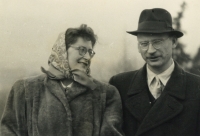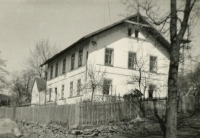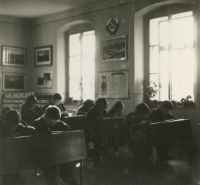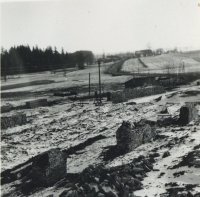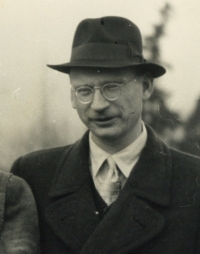Rychnov citizens can‘t complain about me, and neither can I

Stáhnout obrázek
Vlastimil Stehlík was born on 18 August 1921 into a family of Emanuel and Marie Stehlík, pub owners in Vysoké Mýto. His mother died at the age of six and he lost his father when he was fifteen. He remembers the difficult life with a stepmother. After graduating from the teaching institute, he taught for a short time at a secondary school in Vysoké Mýto, but with the arrival of the Nazis he lost his job and found a job in the Stratílek factory. It produced fire equipment and Vlastimil avoided forced labour and even organized cultural events in the company. After the war he enlisted in the army for nine months and then joined a small class in the village of Rychnov near Krouny in the Highlands. Vlastimil Stehlík tried to raise the cultural level here as well. He joined the communist party and held the position of chairman of the local national committee, while trying to protect the peasants from the time of collectivization. In the 1960s he moved with his wife to Polička and worked as a culture inspector in Svitavy. He was dismissed from office due to his disagreement with the Soviet occupation in 1968. Initially he was allowed to teach at a special school and for the remainder of the 1970s he worked as a pumper far from home. Meanwhile, Vera died of cancer. In the 1980s he was able to return home thanks to his newly acquired work at a pedagogical center, where he took care of teaching materials and aids. After 1989 he worked as a pensioner as a guide in the museum in Polička. Vlastimil Stehlík died in September 2020.
